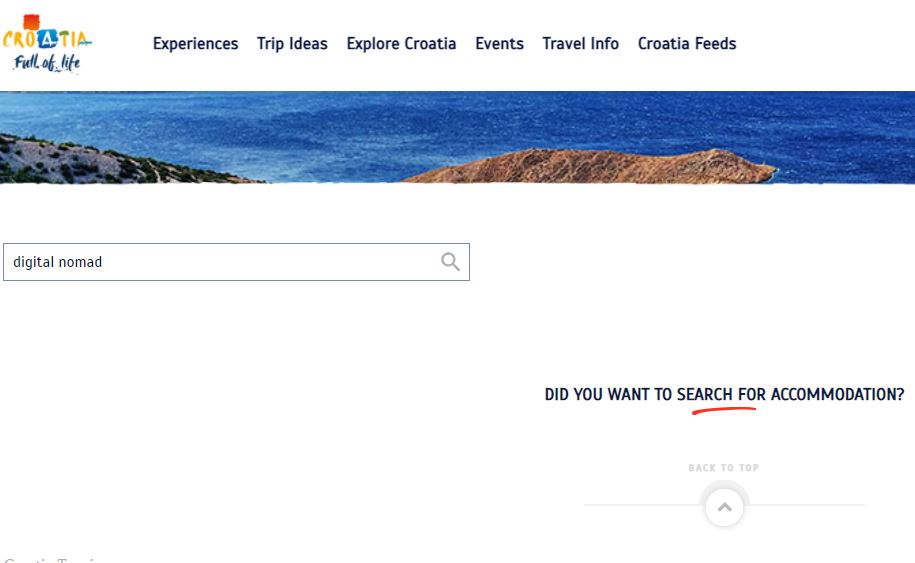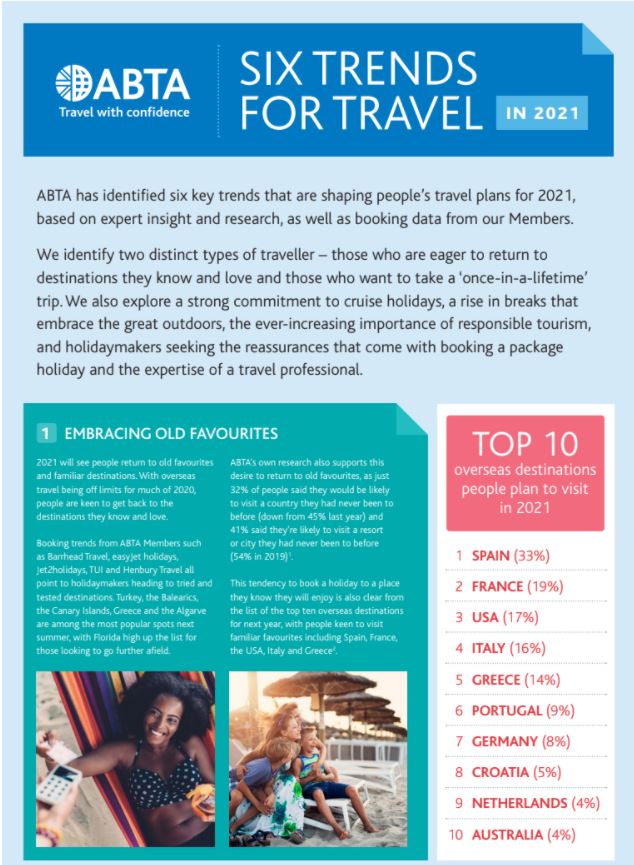Croatia Has Lowest Share of Women Managers in EU
ZAGREB, 6 March, 2021 - Croatia is at the bottom of the EU ranking of women at management level and women in the EU are still far from being men's equals, according to an Eurostat report.
The COVID-19 pandemic "has led to unprecedented changes in the workplace," Eurostat said, but data on men and women at management level continue to reveal familiar patterns.
"While both women and men bring different qualities to crisis management, women remain outnumbered at the management level," Eurostat said.
"In Q3 2020, more than 9.5 million people held a managerial position in the EU: 6.2 million men and 3.3 million women. Although women represent almost half of all employed persons in the EU (46%), they are under-represented amongst managers (34%)."
In the past 20 years, the share of women in managerial postions "has gradually increased from just below 30% in Q2 2002."
Latvia and Poland on top
Latvia, Poland, Bulgaria, Hungary and Slovenia have the highest shares of women managers, with Latvia recording the highest share in Q3 2020 (45%), followed by Poland (44%).
Bulgaria, Hungary, Slovenia and Sweden are next, each with a 42% share.
Above the EU average are Ireland, Romania, Finland, Estonia, Spain, France, Portugal, Slovakia and Lithuania, their shares of women managers ranging from 38 to 35%.
In Denmark and Germany, less than one in three managers were women according to data for Q4 2019.
"At the opposite end of the scale, women account for only around a quarter of managers in Croatia (24%), the Netherlands (26%) and Cyprus (27%)," Eurostat said.
Croatian Tourism 2021 Preparations v Competition: The View from London
March 6, 2021 - How are preparations for the Croatian tourism 2021 season going compared to the competition? The view from London-based tourism professionals.
With lots of other exciting things happening in Croatia and elsewhere, and with more writers joining the expanding TCN team, I find myself writing less about tourism these days than in years gone by. My fascination with a country which generates more than 20% of its GDP from tourism, yet does almost nothing noteworthy (unless by noteworthy, you mean all the dumb stuff - there is PLENTY of that) to promote continues. And I wonder what this country could achieve - not only in tourism but in every sector of the economy - if it had more competent officials working more for the greater good and with genuine expertise.
I can't think of a clearer current example than an article I wrote last week comparing the efforts - and results - of one volunteer expat and the global promotion he achieved with zero kuna compared to the lack of presence of the state body with 70-80 employees and a budget of up to 400 million kuna annually, whose sole purpose is to promote Croatian tourism. Read more in Dutchman Promotes Croatia Globally: Meanwhile, in the Kingdom of Accidental Tourism...
There is still no information about the new digital nomad permit on the Croatian National Tourist Board that I can find. This is what you get when you search 'digital nomad'. There is also no information on the Ministry of Tourism website either. Indeed, much like last year and dealing with tourism during the pandemic, the only officials who have any information are the Croatian police and Ministry of the Interior.
CNN, Lonely Planet, Forbes and the Washington Post might be busy telling the world about new initiatives in Croatian tourism, but it seems that the bodies responsible for doing that have yet to figure it out. I guess it is only March, the season is so far away. Pomalo...
As I say, it fascinates me. But, as my business is not dependent on tourism, it doesn't bother me very much these days.
But it does bother those whose livelihoods are directly linked to tourism. I have received about 10 emails and messages from the UK from tourism businesses connected to Croatia in recent days, emails such as this:
Hi Paul, hope you are well. Do you think Croatia will be publishing any news to let the UK know they are open for business this summer? It’s been a few days now and we’ve still not seen anything here reassuring potential visitors they will be welcome. Unlike Greece which have featured in most news outlets recently. I got an email yesterday about the new Stay Safe Croatia campaign but I think there is a need for an Invite to be sent out for the summer as folks are not sure they will be welcome. Anything you can do to help?
Much more indepth was the following, which I received from a UK-based representative of a company that specialises in tourism to this region. I received it on March 1 (been a little busy here...) and I will publish it in full.
We want to remind everyone in the sector of the potential that Croatia has by sharing the latest trends. Things are starting to move in the travel sector, especially in the UK, and we should take this opportunity to attract more bookings from the active markets.
We attach the most recent surveys, ABTA reports, headlines from UK news and screenshots of Google trends we referred to in the text below.
About us:
Laura Milos Sanchez - In the travel industry for over 10 years, experienced in inbound and outbound travel, focused on the Croatian market for the past five years. She was born in Colombia and came to Croatia at an early age. She lives in London for the past 2 years and works in a well-known UK travel company specialized in luxury travel, looking after Croatia, Montenegro, and Slovenia, for 5 years, together with Sanja Stanisic. Sanja works remotely from Rijeka for the same UK travel company for the past 3 years, Sanja is a travel expert with extensive experience in Croatian tourism working in international DMC and travel companies for more than 8 years. We are both sales managers for the Balkans region (mainly Croatia, Slovenia and Montenegro) within the Mediterranean cluster of the company.
Travel reports show Brits are getting ready to travel, with a high number of travellers booking summer. Marketing promotions are coming from travel companies, tour-operator, newspapers, travel magazines and articles listing best travel destinations for summer 2021.
With 19.6 million people vaccinated, one in three adults in the UK (source BBC) and the PM announcing travel should be possible after the 18th of May, the UK market is getting very active and travellers are looking for their next destinations.
Though Croatia has been a desirable and popular destination for the last couple of years, in recent weeks we haven't seen much about Croatia in travel campaigns, articles, and news. At the moment we don't see Croatia appearing on the front page of travel companies, and it is rather appearing on the second or third page. Considering we are asked to stay at home, is difficult to notice the usual £49 Dubrovnik flight add on a London double-decker. Nonetheless compared to last years we feel there is less marketing around flights to Croatia and less news talking about summer in Croatia.
This could be because we still have the feeling is quite early, and everyone expects last-minute bookings. But reports show this is not the case. After a couple of calls to Croatian hoteliers, we noticed most of them were not aware things have started moving here in the UK. Lots of Brits will have both vaccines by summer and they may be looking into destinations that could have the best approach and rules for them to enter the country.
By Googling Croatia or travel to Croatia, in the UK, you won't see much. Other Mediterranean destinations are having lots of media coverage, mentioning specific outlines for the new covid season.
This type of information has been heavily followed by the news and reflect on the booking itself. Tour-operators have been focusing strongly on flights to Greece and Spain by offering them as top destinations.
Marketing campaigns showing how safe Croatia is, including the Stay Safe in Croatia, though WTTC is a very good starting point. Being labelled as a safe country that follows the principles of the WTTC should lead to a safe movement of tourist in 2021.
As important it will be to the vaccine as many people as possible and maintaining the good COVID numbers and by that making the guests feel safe in our destination, this year it will not be a deal maker as it was last year. Although this year the big focus is still on safe stay, for a very large number of guests logistics will be the most important part of their holidays and it will be equally important to establish a plan of safe movement and entry of tourists to the country.
Establishing these kinds of plans and announcing them through strong marketing campaigns while travel companies actively offering Croatia on their top destinations should create different momentum.
Labelling hotels, restaurants, museums etc. as safe is a reassuring thing for the guests to see, but that guest is already here where we want him to be. We should focus more on those guests who are yet indecisive, who weigh on where to escape this year on their so long-awaited and overdue holidays. That is also why we need to be present not only on official channels but should direct marketing to travel companies, OTA's, travel review sites, push much more towards those who are on the front line in bringing booking to our destination as in this covid "new world" everyone is holding on to the digital world more than before covid.
The race for early bird bookings has already started. Greece has seen very positive booking trends in the past 7 days since the UK has announced lifting the restrictions in the second half of May.

We have a very good covid trend now, comparing to other Mediterranean countries.
We all know that numbers are very relative and can shift very quickly. The past season has thought us how rapidly we can go from bliss to despair, and we couldn't do anything to prevent it, it was by far too late to react, it caught us very much off guard and we cannot allow ourselves to have last year repeat itself.
Every country has been affected this past year with covid, and we cannot rely upon or delude ourselves that because of the good geographical position and good "covid reputation" we will continue to see booking increase in "neutral driving mode". We have all heard how Spain, Italy, lately Portugal and Turkey have been hit by a coronavirus, but they all continue to be ahead. Following the trends and statistics by ETC follow:
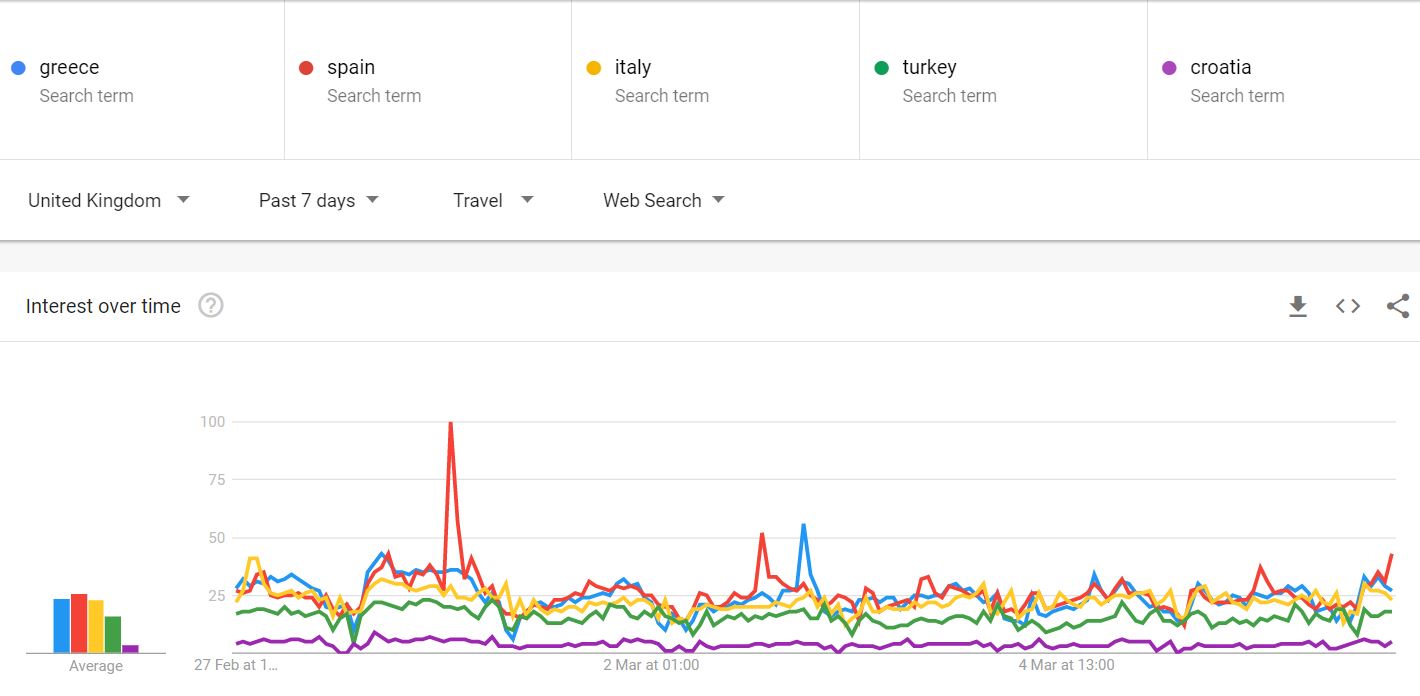
We need to catch that pace before the German government lift the restrictions and starts actively booking their next holiday.
If the German government persists with the idea of opening borders and lifting travel restrictions only for countries that maintain under 35 infected people on 1000 residents, what is the best way to respond? Maybe the answer lies in the Greek model, where they have split the country into many regions, each island is a region for itself, giving them a lot of manoeuvre space in preparation for the season.
The surveys constantly show and remind us that flexibility, no-prepayment and safe coming in and going out of the country, knowing under what conditions and from what date they can enter the country with clear information easily accessible online is what will define this season.
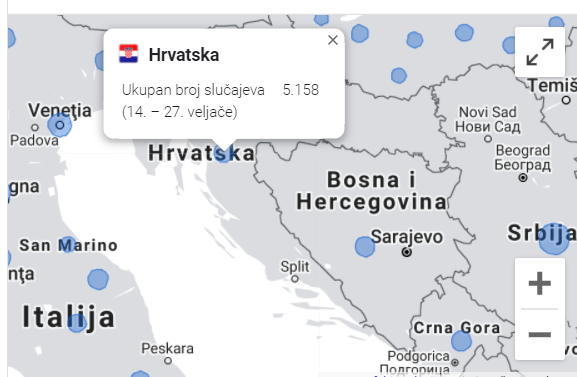
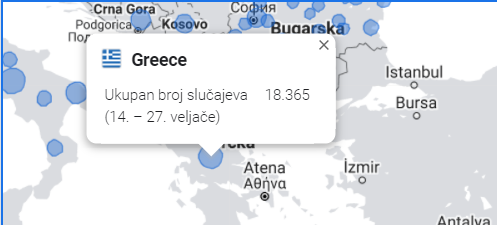
We believe that reminding not only driving distance markets but as well flying guest, of all the secluded places they can visit, from small quaint villages around Dubrovnik and Split to Islands where there are barely any cases at all, we could see a different booking pace from flying guest predominately British travellers, but that needs to be advertised.
Let's not forget we have the best of both world, the driving distance German travellers and British travellers getting ready to fly, let's keep reminding these countries how safe and beautiful Croatia is and help our tourist discover different places they can enjoy in Croatia (countryside< secluded, nature, Islands...) With so much diversity to offer, we should be setting the trends, not continuously trying to keep us with them.
We believe through strong marketing campaigns and good media coverage emphasizing how beautiful and safe Croatia is, presenting a set of protocols Croatia will be following and enabling a safe, quick and smooth entry for travellers (perhaps through vaccine passports or providing PCR tests at airports, hotels, etc), we may see a different booking peace similar to the one other Mediterranean countries are currently experiencing.
Interesting stuff. Anyone else have information and insights from where they are outside Croatia in key tourism markets. If you have expert comment you would like to share, backed up by links and data, please contact us on This email address is being protected from spambots. You need JavaScript enabled to view it. Subject 2021 season.
3 in 4 Croats Aged 20 to 64 to be in Work Under 2030 Employment Target
ZAGREB, 6 March, 2021 - Croatia's 2030 employment target is to have 75% of adults in work, and currently only two thirds (66%) of the adult population are employed, the Večernji List daily reported on Saturday.
The current Portuguese presidency of the Council of the European Union is organising a summit meeting on social affairs in May, and the EU is supposed to endorse new goals in this sector which should be accomplished until the end of this decade.
One of the goals is that at least 78 of 100 people aged 20 to 64 should be in employment by the end of this decade.
Three of four Croats aged between 20-64 to be employed
It is up to each member state to define its targets, and Zagreb plans to have three fifths people in the 20-64 age cohort in employment until 2030. For this target to be met, the country should create new 200,000 jobs in the coming years.
Currently, only Greece and Italy fare worse than Croatia in this regard, where only three fifths of adults (60%) are employed.
Sweden tops the EU ranking with 82 out of 100 adults being employed, and Germany follows with 80%.
Expats in Croatia/Pandemic Edition: Liza Muradian from Georgia in Split (VIDEO)
March 6, 2021 - The global pandemic rages on and we’re still locked down with restrictions and social isolation. Some people are surviving and others are thriving. What’s their story? Episode #5 with… Liza Muradian from Georgia.
It is almost one year since the World Health Organization declared covid-19 a global pandemic on March 11, 2020. Nobody expected what came next and certainly nobody expected things to last this long. But here we are, wondering when it will be over and hoping the vaccine will restore some sense of normalcy.
In the meantime, how are people filling their days? When it’s all said and done, how do they want to remember this time looking back? In this new series we’ll hear from all sorts of people in Croatia about their pandemic experience and their predictions for the future.
Episode #5 with… Liza Muradian from Georgia
For a Georgian girl who knows a thing or two about hiking, mountains, and wine country, living in Croatia was the next best thing to Liza Muradian’s hometown when the pandemic hit. She didn’t expect to be “stuck” in Split when she arrived here with her family just before global shutdowns started rolling out, but there’s plenty to keep one distracted. Great work colleagues, local friends, the sea, and of course the mountains keep this mom of two children busy. What does she miss? Family and friends back home. But travel is on the horizon—people will visit her here so she can show-off new lifestyle, she’ll make a return trip to see family, and I’ll go with her to visit another digital nomad-friendly destination!
Story and photographs ©2021, Cyndie Burkhardt. https://photo-diaries.com
For more of Cyndie's experiences, check out her Croatia Through the Eyes of a Digital Nomad column.
Are you an expat in Croatia who would like to share your experiences during the pandemic in Cyndie's video series? If yes, please contact her on This email address is being protected from spambots. You need JavaScript enabled to view it.
We are also keen to interview any digital nomads who have successfully applied for the new visa, after the first success in Istria - Meet Melissa Paul, Owner of Croatia's First Digital Nomad Visa. Please contact us on This email address is being protected from spambots. You need JavaScript enabled to view it. Subject Nomad Visa.
From Phylloxera to Apartmentisation, the Road to Nomad Land
March 6, 2021 - It is always a pleasure to publish the thoughts of Zoran Pejovic, one of Croatia's most respected tourism professionals. A word of warning to those rushing into the digital nomad tourism opportunity, looking back at the examples of phylloxera and apartmentisation.
At the end of the nineteenth century, the good people of Dalmatia got the word that the big wine-producing countries, France, and Spain primarily, lost almost all their vineyards due to the small but mighty pest called phylloxera. They rushed and dug all their olive groves, fruit orchards, and gardens and planted vines, hectares and hectares of vine, thousands of hectares. What followed was several years of amazing growth. The prices were going up and it seemed that the panacea for all the hardships of the hardworking people of the Adriatic coastline was in hand. Well, we know now that it was a terribly bad idea. Some people knew it at the time as well, but their voices could not be heard, as people did not want to hear it. Phylloxera reached our fine shores as well and wiped out all those thousands of hectares of the recently planted vineyards which led to a great famine and mass emigration to the Americas and elsewhere. In the meantime, French and Italian and Spanish growers “vaccinated” their vines by grafting them on the resilient American roots, and their life and wine production resumed. Ours almost came to a halt.
At the start of the twenty-first century, the good people of Dalmatia got the word that many of the countries that we saw as our competitors in the tourism industry disappeared from the map, mainly due to the geopolitical turmoil, wars being waged in the vicinity or some other factors that made them unsafe to travel. So, we rushed and turned all our houses, apartments, and garages into summer rentals. What followed was several years of amazing growth. The prices were going up and it seemed that the panacea for all the hardships of the hardworking people of the Adriatic coastline was in hand. Well, we know now that it was a terribly bad idea. Some people knew it at the time as well, but their voices could not be heard, as people did not want to hear it. Coronavirus reached our fine shores and wiped out our touristic output by 75%. The apartments for the major part are sitting empty and will probably do so second season in a row, and people are looking for the best emigration options.
The latest panacea on the shelves of the pharmacy of our lives is called “digital nomads”. Apparently, the big cities of the world are not the most pleasant places to be in and live in right now, and people are going to rush to our fine shores and set their IT shops and office, sip wine on the balconies of those empty apartments and leave us their money. People are digging trenches and bringing optic fibers to their houses on the islands, believing that with the high-speed internet connection and the unbearable blueness of our seas and skies it will be impossible to resist the call to join the movement of digital nomadry. While in essence a good idea, and a good PR stunt, albeit not nearly as good as the one from Dubai or some Caribbean islands, and one that I support in terms of legislation and easing of the bureaucratic burdens, I cannot help but feel like we are doing the same things all over again.
We keep looking for new trends and perhaps new directions, without ever establishing a clear identity. The digital nomad program cannot be our identity. It can perhaps be one of the trends or one of the directions we take, but it must stem from the strong, well-built, and easy-to-understand industry identity. We will not be able to build the identity until we understand the progression of economic value, from commodities to experiences and transformations. You simply cannot skip the steps and expect that the entire thing does not falter like a house of cards at the first sign of trouble. We have learned how to commoditize sea and sun, and that to a point only. How those commodities make goods that deliver services that set the stage for experiences that guide transformation is still to be understood for the vast majority of those who pertain to play the part in this industry of people aggregation, travel, tourism, hospitality, leisure, and all connected industry spin-offs. This is obviously not a problem of those who promote this program, which to reiterate once again, I fully support, but of those who keep looking for simple solutions to the complex problems. This a general human characteristic, but sometimes it feels we excel at it a bit more than the others. This will be short-lived solution, until next one surfaces and then we will all rush to root out our vines and plant the lavender. Oh, wait, that has already happened as well!
You can read more of Zoran's writings on TCN here.
For more about the digital nomad scene in Croatia, follow the dedicated TCN section.
Institute for Public Health Updates Croatian Coronavirus Info
March the 6th, 2021 - The Croatian Institute for Public Health has updated the latest Croatian coronavirus info as the situation with the spread of the novel virus and its accompanying variants continues to unfold.
As Poslovni Dnevnik writes, the Croatian Institute of Public Health has published the revised recommendations on priorities for SARS-CoV-2 testing, contact tracing, the completion of self-isolation, and quarantine/self-isolation with reference to persons who have already had COVID-19 or have been vaccinated against it.
Vaccination against COVID-19 is now considered, as is recovery following the contraction of the disease, to be a valid reason for quarantine exemption and subsequent testing following close contact with a coronavirus patient. Close contact testing continues to be recommended if they are part of a collective arrangement or if they work with highly vulnerable groups of people.
In addition, given the increased testing capacities and the overall reduced incidence of the disease, there is no need to specify priorities for testing in symptomatic individuals, the CNIPH announced in the latest round of updated Croatian coronavirus info.
Contacts infected with the new strain of the novel virus will be quarantined for a period of fourteen days, not ten.
If, based on the anamnesis or the results of a screening test for new variants, it is suspected that the patient is suffering from a variant of the virus with a higher spread potential or that is antigenically different from the predominant variants, contact quarantine will last for fourteen days," the updated Croatian coronavirus info states.
It is also noted that this currently refers to the so-called British, Brazilian and South African variants of the virus. If ongoing sequencing of strains shows that the British variant is already widespread in the population, the extension of quarantine will not apply to close contacts of patients suffering from the British variant.
"After the end of quarantine, it is not necessary to test people if they don´t develop any symptoms (unless they are immunocompromised, work in healthcare facilities or are social service providers for elderly and seriously ill adults, as well as people with disabilities, using a PCR test).
Those who have already contracted and recovered from the disease or have been vaccinated should not be tested if they aren´t presenting with any symptoms.
Immunocompromised people working in healthcare institutions, those who are providers of social services for the elderly and seriously ill adults and persons with disabilities, who did not develop any symptoms of COVID-19 during their quarantine, may return to their workplace and terminate the measure of quarantine after testing negative on the 10th day of quarantine. A PCR test will be used for this purpose.
The latest Croatian coronavirus info also states that people who did develop symptoms of COVID-19 when in quarantine/self-isolation should be tested, and in anticipation of the test results, they should be treated as if they are indeed infected.
A rapid antigen test or a classic PCR test may be used for this purpose.
In addition, if a person has had laboratory-confirmed COVID-19 in the past three months, or if they have received a second dose of the COVID-19 vaccine at least fourteen days previously, testing is not required if there are no clear symptoms of the novel virus, according to Index.
eReconstruction System Begins Operations in Post-Earthquake Petrinja
March the 6th, 2021 - The eReconstruction system is now in operation in earthquake-stricken Sisak-Moslavina County in central Croatia, aiming to make administrative processes for those who need construction services more easily accessible.
As Poslovni Dnevnik/Marija Crnjak writes, Minister of Construction Darko Horvat recently presented a new system for the electronic submission of requests for the reconstruction of earthquake-damaged buildings - the innovative new eReconstruction system. Croatia´s eReconstruction system has otherwise been in operation for a couple of days now, and the minister has emphasised the fact that it will speed up the process of submitting and receiving applications.
"In cooperation with the company APIS IT, we created the eReconstruction system in order to make the process of applying for renovation/reconstruction following the earthquake as easy as possible for our affected residents and to offer them several different opportunities for this purpose," explained Horvat.
Easy access to the application for all natural and legal persons is provided through the e-Citizens (e-Gradjani) system, and a level three credential will be sufficient for entry via NIAS.
The Minister revealed that the doors of the Reconstruction Information Centre will also open in the centre of Zagreb by March the 15th, which will house officials of the Ministry, the Reconstruction Fund and the Central State Office for Reconstruction and Housing, as well as employees of the Legal Clinic.
People will be able to get their hands on all of the necessary information and advice there, and they will also be able to submit requests for property reconstruction.
"We want to continue to be here, present on the ground as much as possible, so that we can make the procedures for submitting applications for reconstruction as simple as possible. Our focus now is on issuing the first decisions on reconstruction, so that they are sent to the Fund and the Central State Office for operationalisation and the beginning of the organisation of reconstruction, " concluded Minister Darko Horvat.
For more on the Petrinja earthquake, follow our dedicated section.
Seaclear Project: Robots to Clean Croatian Adriatic Seabed
March the 6th, 2021 - As gorgeous and clear as it might seem, the Croatian Adriatic seabed is not immune to human negligence and wanton disregard for the environment. With multiple beach and sea cleanup actions taking place throughout the year, huge amounts of rubbish are unfortunately continually pulled out of Croatian waters. Might robots be able to lend a helping hand?
As Morski writes, "How can robots clean up our mess?" was the topic of an online lecture organised by the Fraunhofer Centre for Maritime Logistics and Services from Germany, which presented the innovative and forward-thinking SeaClear project. The project is being partly implemented down in the extreme south of Dalmatia, more precisely in Dubrovnik-Neretva County.
The Seaclear project, its actual full title being "The search, identification and collection of marine litter with autonomous robots", aims to develop autonomous robots for cleaning waste from the Adriatic seabed and is funded in one hundred percent by HORIZON 2020.
More than six million kuna for the area of Dubrovnik-Neretva County has been secured through this praiseworthy project, and the DUNEA Regional Agency and the University of Dubrovnik are currently the only Croatian partners.
The Croatian Adriatic seabed is unfortunately often the victim of human carelessness, and the area around the island of Lokrum and the Mali Ston bay, which is a very important area from the mariculture sector, were chosen as the pilot area, while the third location is the port of Hamburg over in the country of the project´s conception - Germany.
In addition to the DUNEA Regional Agency, an expert team of the University of Dubrovnik will also participate in this important partnership, as it has all the competencies for this demanding role when it comes to developing innovative solutions to the problem of waste removal from the Adriatic seabed.
The partnership also includes some of the world's most famous organisations that will deliver proven hardware and four academic institutions with complementary expertise in underwater and air robotics, sensors, mapping and control. The project is worth a total of 37,099,342.50 kuna, and will be implemented from now until December 2023.
For the latest travel info, bookmark our main travel info article, which is updated daily.
Read the Croatian Travel Update in your language - now available in 24 languages.
New Krizevci Settlement to be Erected for Turkish Railway Workers
March the 6th, 2021 - A new Krizevci settlement is springing up which will house those working for a Turkish company which is constructing the railway line to the Hungarian border.
As Poslovni Dnevnik writes, just in front of Krizevci, a workers' settlement being built by the competent Turkish company is being erected. This will be the home of those working on the construction of the brand new railway, which Croatia desperately needs, stretching all the way to the Hungarian border. The project is otherwise worth a total of 2.5 billion kuna.
This new Krizevci settlement consists of about twenty smaller houses. There are dormitories for the railway line´s workers, a dining room and a kitchen. There will also be a lab, workshops, and even a gym. At the peak of the construction work, between 700 and 800 workers from Turkey will be housed there, according to a report from Dnevnik.hr.
"According to the contract, the duration of our project is 42 months. I can say both on behalf of my colleagues and on my own behalf that we have been very well received here. We feel good here and we haven´t been having any problems at all,¨ said the project manager Mehmet Yilmaz.
"The town is beautiful, and I hope that in the future I will have the opportunity to explore Krizevci and the surrounding settlements even more, meet more local people and that we will adapt and accept the local culture," said railway line worker Cemil Şentürk.
Hairdresser Valentina said that they managed to communicate with the local Croatian population "with their hands and feet" and added that when it comes to hairstyles, they let the hair stylists do what they think would be best.
In addition to the local hairdressers, Krizevci itself will also benefit, with taxes and surcharges on the salaries of the Turkish workers, and they have already hired some local Croatian workers.
"Some Croats are employed in cleaning services and all the additional services that such a settlement needs," said Mario Rajn, the mayor of Krizevci. For the next four years, this will be the 60th settlement within Krizevci, and also the most populous of them all.
For more, follow our business section.
Croatian Police and Deminers Rescue Several Migrants From Minefield
ZAGREB, 5 March, 2021 - Police and deminers yesterday and today rescued several illegal migrants whose lives were in jeopardy in the mine field in Saborsko municipality, after one migrant was killed and several sustained injuries in a landmine blast, the Interior Ministry (MUP) said on Friday evening.
Members of Lučko Anti-Terrorist Unit yesterday searched the area by helicopter and then warned migrants that they were in a mine suspected area and should stay in place until help arrives. Deminers of Lučko Anti-Terrorist Unit this morning started to inspect the field and create a safe corridor for evacuation and ten persons were rescued and offered medical help.
MUP said in the press release that a group of foreign nationals had illegally reached Croatia and entered a mine suspected area in a forest area in municipality Saborsko. There, a younger man stepped on an unidentified explosive device and died, while other persons from the group sustained injuries in the blast. After receiving a report, police officers found one man dead and one injured, while the rest of the group went away in unknown direction.
According to the interior ministry, at the moment six persons have an intention to make an application for international protection in Croatia, while other persons are in medical care due to having sustained injuries.The life of one of them is in danger.
The Ministry of the Interior and Croatian police, it is recalled, have been intensively underscoring the dangers of illegal migrations since 2018, especially warning of the danger of mine suspected areas, severe winter conditions in the mountains and rivers.


